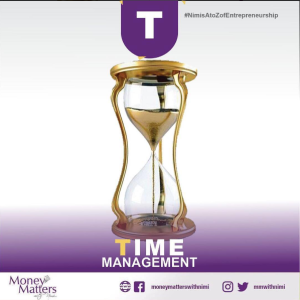Alhaja Shittu started trading as a young girl and in twenty years had established herself as one of Nigeria’s largest distributors of high quality household brands ranging from baby food and diary products to instant noodles. She also became a large investor in the blue chip companies for whom she distributed products and build a substantial share portfolio.
Whilst she was an experienced trader and investor, Alhaja was one of those Nigerians that see the writing of a will, or any estate planning for that matter, as taboo. When she died of a heart attack at 67 years old leaving a legacy valued at hundreds of millions of naira, it took her seven children seven long years to sort out her estate and gain access to just a part of it.
Many share certificates were lost as neither the administrators nor the beneficiaries had full knowledge of the totality of the shares involved. Over time, some companies had merged with others or ceased to exist. They were unable to trace a large number of share certificates and some dividend cheques appeared to have been fraudulently cashed.
Many le\
gal heirs get caught up in a long drawn out and tedious process after the death of an investor. Due to a general apathy shown towards investments, share certificates and dividend warrants are often not given the appropriate attention during an investors lifetime and often end up being lost or difficult to trace. As a result, many legacies or bequests go unclaimed and abandoned. This has contributed to and continues to exacerbate the already large incidence of unclaimed dividends in the Nigerian Capital Market.
Transmission of shares
The process by which securities of a deceased account holder are transferred to the account of his legal heirs is referred to as “transmission”. The process is an involving one that includes but is not limited to the following:
Obtaining either probate or Letters of Administration, whichever is applicable.
Presenting physical share certificates if they have not already been lodged in the central depository prior to the investors demise
Presenting a certified copy of the death certificate along with other documents required in support of the application
If the deceased shareholder had holdings in different companies, the relevant documents must be forwarded to each of the company registrars
Payment of estate taxes which is 10% of total estate value to the government, and a transmission fe
Obtaining bankers confirmation for the various registrars
Here are a few things you can do now to minimize the stress that your beneficiaries go through tain ownership of the shares that you intend to leave them.
Dematerialize your share certificates
The share transmission process becomes most complex where the deceased held shares in physical form in his sole name and died intestate. The process of transmission in the case of dematerialized holdings is simpler and much quicker. In the depository system, the shares are already account balances in the electronic form and the successor needs interact only with the stockbroker to whom he submits necessary documents; in case of physical securities the legal heirs or surviving joint holders have to independently correspond with each company registrar in which securities are held which can be a long drawn out process.
Make a will
When one dies leaving a valid will that specifies how an estate including shares, property and cash in the bank should be shared among beneficiaries, the transmission process is fairly straightforward once probate has been granted. A trust is also an ideal vehicle to hold assets for proper management and a seamless transfer particularly when a substantial estate is involved.
Shares held jointly
Some people opt to include their spouses or other family members as named joint shareholders. In the case of a joint shareholding, the registrar after verifying the transmission form and other relevant documents submitted by the surviving shareholders, will delete the deceased members name from the register. Consequently, the remaining shareholder(s) will be recognized as registered holders. The process is much more unwieldy where a deceased shares are held in a single name only.
Other planning options
There are other planning options that simplify the transfer of assets to beneficiaries. Some investors purchase shares in the name of a company or have shares transferred to a company vehicle with beneficiaries as shareholders of the company. Upon the demise of the investor, the authorized signatories of the company can simply be amended to reflect the beneficiaries. Yet another option is to open a nominee account and transfer all the shares to an account managed by an experienced portfolio manager as a discretionary portfolio.
Do something about your shares in your lifetime. The effect of not properly handling these assets can only result in a painful and frustrating time for your loved ones, which you can avoid















































My friend has a Demat Account and his wife expired and she has shares in physical form – How totransfer to Husbands Demat A/c